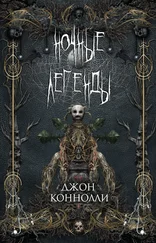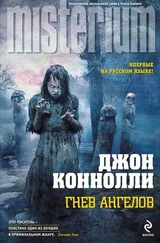Sneed earned a modest income at Warnell’s hardware store – the largest provider of home improvement products in Burdon County – which he supplemented with various forms of criminal activity, including, but not limited to, theft, embezzlement, and the sale of narcotics. Unfortunately for Sneed, he belonged to the class of malefactor that possessed all the instincts for wrongdoing without the acumen to carry it off successfully. This had brought him to the attention of Jurel Cade, which was not the kind of scrutiny that Horrace Sneed relished. In return for not being consigned to the state’s prison system, where he would undoubtedly have floundered, Sneed had agreed to act as an informant for Cade.
Thanks to his innate dishonesty, Sneed turned out to be a virtuoso snitch – so good, in fact, that he had convinced himself his guile was sufficient to cozen even Cade himself. For this reason, Sneed had decided not to share with Cade the details of his professional relationship with Tilon Ward, because his part in the distribution of Ward’s product enabled him to enjoy some of the finer things in life, such as a big-screen TV, Minute Man hamburgers, and hookers who could speak English. He had also become a minor cog in the meth-manufacturing machine by occasionally altering orders and invoices in order to redirect supplies of muriatic acid and other chemicals.
Sneed still lived in the house in which he had been born. It was left to him after his father died, his mother having predeceased her husband by many years – almost certainly to her relief, since Sneed’s old man had given even habitual domestic abusers a bad name. The house was too big for one person, but selling it wouldn’t have significantly improved Sneed’s prospects, as its location and condition meant that he wouldn’t have been able to afford anywhere better with the proceeds. But Sneed kept the interior reasonably clean and made sure the yard was clear of trash. It wasn’t as though he entertained many visitors – any visitors at all, to be honest; it was purely a matter of personal pride. He didn’t want to be like his father, who had lived and died in squalor.
On this particular evening, Sneed opened the front door of his home to be greeted by his cat, Poindexter; the smell of the stew he had cooked the previous night, which he planned to reheat as soon as he’d fed the animal; and the sight of Jurel Cade sitting in Sneed’s favorite armchair, a black wooden baton in his right hand, its leather thong looped around his wrist.
‘Hello, Horrace,’ he said. ‘Better close that door. Don’t want your cat getting out.’
Sneed closed the door, although Poindexter wasn’t the straying type. He put his car keys on the hall table.
‘Am I in trouble?’ said Sneed.
‘Yes, you are. Get in here and sit down.’
Cade used the baton to point at the couch. Sneed sat.
‘What can I do to get out of trouble?’ he said.
‘You can tell me where to find Tilon Ward.’
Lying was so ingrained in Sneed that he did it without thinking. He was predisposed to telling an untruth even when honesty couldn’t hurt him.
‘I guess Tilon’s over in Cargill, where he always is.’
‘That,’ said Cade, ‘is the wrong answer.’
He twirled the baton and got down to business.
82
Pettle’s hand was shaking, which meant the gun it held was also shaking. This didn’t make Parker feel any better about looking down the barrel. The hammer wasn’t cocked, which was something, although it didn’t qualify as reassurance. The weapon dangled lengths of the duct tape used by Pettle to secure it to the underside of the table. Parker had already been moving his hand toward his own weapon when Pettle beat him to the draw. He’d underestimated the preacher, which was another error to add to a growing catalog, although one that might now have reached the final sum of its increase.
‘You don’t need that,’ said Parker. ‘However difficult your position may seem, holding a gun on me is unlikely to improve it.’
‘You have no idea what I need or don’t need,’ said Pettle. ‘Right now, I’m not happy that only one of your hands is visible. I’d really like to see the right as well as the left.’
Parker placed both palms flat on the kitchen table.
‘Why were you concealing a gun, Reverend?’
‘I told you: my wife and I are overdue for a conversation.’
‘What kind of conversation requires a weapon?’
‘My wife won’t listen to me. I try to tell her I’m sorry, but she walks away. I require her undivided attention in order to explain certain facts to her. It’s very important.’
‘Why is that?’
‘So she’ll understand.’
‘Understand what?’
‘Why I did what I did.’
‘Is this about Sallie Kernigan?’
‘Yes.’
‘Does your wife know about your relationship with Sallie?’
‘She does. That knowledge lies at the heart of our current difficulties. She won’t forgive me, and I require her forgiveness.’
Parker tried to keep his breathing even. He didn’t want to die here, in a too quiet house, at the hands of a disturbed preacher. But if he didn’t want to be shot, he had to keep Pettle talking. He needed to persuade him to put the gun down. Strange, he thought: there was a time, not long before, when he had wished only to die. Now, faced with the reality of his dispatch, he was reluctant to embrace its immediate likelihood. He still wanted it, but – in the manner of St. Augustine – not yet.
‘Why are you smiling?’ Pettle asked.
‘I hadn’t realized I was.’
‘Aren’t you frightened?’
‘Some, but not as much as you might think.’
‘Why?’
‘Because fundamentally I believe that you’re a good man. I wish you weren’t pointing a gun at me, but I’m not going to give you cause to use it. I want to help you. Situations like this never have only one possible outcome. It can appear that way, but it’s not the case.’
‘But you don’t know what I’ve done.’
‘Then tell me, Reverend. Tell me about the blood.’
Pettle’s left hand stroked his shirt, as though to wipe away whatever residue remained of his sin.
‘He wouldn’t leave Donna Lee alone,’ said Pettle. ‘He was just like Hollis Ward. Neither of them could keep their hands off young girls.’
‘Who wouldn’t leave her alone?’
‘Denny Rhinehart.’
‘Did Rhinehart kill Donna Lee?’
‘I don’t know. He said he didn’t, but I wasn’t sure whether to believe him or not. Then he said he’d tell the police about Sallie and me. He never did like me, and the feeling was mutual. But I would never have ruined him, not the way he was threatening to ruin me.’
The phone buzzed again in Parker’s pocket, the vibration audible in the quiet of the room.
‘Do you hear that?’ said Parker.
‘What about it?’
‘I think that’s Chief Griffin. He’s been trying to call me ever since I got here. I told Kel Knight I was coming to talk to you. If I don’t answer, Griffin will send someone to find out what’s the matter. Once that happens, everything will start to go downhill very fast.’
‘You want me to let you answer it?’ said Pettle. ‘Do you think I’m an idiot?’
‘I don’t think you’re an idiot, Reverend. You’ve had a hard time lately, and you’re doing what you feel is necessary to bring it to a conclusion. Sometimes, when we’re under pressure, we act out of character. I’d very much like you to let me answer this call and confirm to Chief Griffin that I’m okay. After that, we can keep talking, and I’ll do my best to find a way to help you resolve your difficulties. I have nothing against you, beyond the fact that you’re holding a gun on me, but it’s likely that I won’t be at ease until we find a solution to your problem. With that in mind, it’s in my best interests to assist you. Can I reach for my phone?’
Читать дальше












